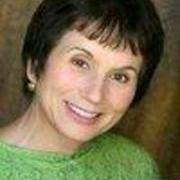Hundreds of people have asked me why someone develops an eating disorder. Of course many issues are involved, but from my exploration of this field over the years, I have concluded that there is one outstanding theme that runs through every person with an eating disorder whom I have encountered.
Early in their lives, people with eating disorders have experienced, on a sustained basis, relentless boundary invasion on every level.
When their physical, emotional, psychological, intellectual, sexual, and creative boundaries are consistently ignored and penetrated, people experience total boundary invasion. With no control and no way to end, protest, or, often, even acknowledge such invasions, these persons feel helplessness, despair, and a certainty that they are worthless to themselves or anyone else.
The consequences of such total invasion are vast. One consequence is an eating disorder. Having had so many boundaries disregarded, a person has no knowledge or skills in recognizing or honoring boundaries herself. She will eat or starve for emotional relief.
She may eat vast amounts of food for comfort value alone. She may deprive herself of food until her life is in danger. She has no internal regulator that tells her when she has reached her limit and experienced enough. Being oblivious to any boundaries means being oblivious to limits of any kind.
The compulsive overeater eats whenever and whatever she likes. She bases her choices on self-medication issues, not feelings of physical hunger.
The anorexic will not eat. There is no limit to her not eating. She will starve herself to death in search of relief from her emotional pain. She knows nothing of the experience of having enough. She couldn't say, "Enough," to an invader of her boundaries, and she can't say it to herself. The concept of enough has no meaning to her. She often feels that if she "disappeared," she might find some permanent relief.
I have heard countless anorexic young women talk ethereally, with a lost-in-a-beautiful-world-of-angels smile, of how wonderful it would be to become a vapor or a light dancing spirit in the clouds. Ah, such spiritual bliss, they imagine. In reality, it's the final self-protective act, to destroy their bodies and their lives completely. Then they can truly escape the complexities of being alive.
The bulimic will binge grotesque amounts of food. She will assault herself with more food than her body can tolerate.
The compulsive overeater will, at last, have to stop eating if only because of the pain in her distended stomach. Her body sets a final limit. The bulimic has no such limit. She experiences (in her mind) no consequences of the food assault on her body. When her body cannot bear more, she will vomit it all out. Then she will resume her binge. She may reach her body's limits many times. Each time she does, she can throw up again and continue.
Eventually she stops, because she is completely exhausted, or she is in danger of being discovered. "Enough" has no meaning to her. There are no limits and no consequences for her disregard of her boundaries.
Realistically, of course, there are plenty of consequences. Her behavior inflicts serious damage to her body. And each time she attacks herself with a binge-and-purge episode, she destroys more of her spirit, soul, self-esteem, sanity, health, and value to herself and others.
Each violation deepens her ritualistic behavior, and she becomes more entrenched in her disorder. The consequence is increasing anguish and despair. Yet the eating disorder is not the cause of that anguish and despair. The eating disorder exists to numb her from her already existing psychological agonies.
For a while, maybe a few years, the eating disorder successfully blocks her awareness of pain too difficult to bear. But eventually the protective device of the eating disorder becomes just another boundary invader, this time self-induced, that weakens and damages her even more.
What do I mean by a history of boundary violations? Blatant and extreme boundary violations involve sexual molestation, sexual abuse, and physical abuse. Much has been written about these areas now, especially in material exploring Post Traumatic Stress Disorder (PTSD) and Dissociative Identity Disorder (DID). Use your search engines to find some quality information posted on the Internet in these subject areas.
However, there are other kinds of boundary violations, and these are less dramatic, less discussed, more prevalent, and just as devastating to a persons psyche. When, in the name of caretaking, people in authority take over a young person's life, it constitutes boundary invasion.
When others deny her privacy, read her diary, borrow or take her things without permission, or use their ideas or goals or personalities to overwhelm her efforts in school or sports, that is a violation of her boundaries.
When others disregard or disdain her choices or deny her any control over her personal life, clothes, food, friends, and activities, they are invading her boundaries.
An invasion of boundaries also takes place when, in the name of caretaking, people give her no responsibilities of her own and attach no consequences to her actions. When the child or adolescent can have all the things she asks for without putting forth effort to earn such gifts, she learns nothing about personal effort, limits, consequences, or the meaning of enough. If she wants something, she gets it. That's all. If someone picks up her clothes, does her laundry, fixes her car, pays her bills, lends her money or things without expecting them returned, she experiences no boundaries and no limits.
If she doesn't have to keep her promises, if she doesn't reciprocate with caring actions for people who care for her, she learns nothing useful about herself in relationship to other people. The only thing she learns with certainty is that there are no limits to her behaviors or desires.
These boundary invasions are not loving acts, nor are they "spoiling" a child through overindulgence. Quite the contrary, they are acts of neglect. The child's taste, mind, capacity to learn, and ability to grow and function as an independent agent in the world remain unacknowledged.
When others, even well-meaning others, ignore her identity as a unique, developing, and competent individual and flood her with their personal agendas, she feels as if a steamroller had flattened out her psyche. She may learn to please, to manipulate, to compete, or to control, but she is unable to learn to be fully present in the world as her genuine self.
She doesn't learn that she has meaning and value. She doesn't learn that she can put that meaning and value within her to work to accomplish goals.
For example, if she breaks something, whether it is a lamp, a car, her word, or someone's heart, it is possible and healthier to give her the responsibility for making necessary repairs using her own resources and her own creativity. In such a process, she learns what effort means. She learns what responsibility and consequences for actions mean. She learns reasonable limits and reasonable expectations. She develops resources to make healthy and caring decisions in the future.
Without such lessons, she learns are the tricks involved in adapting quickly to the expectations of others or being manipulative to get what she wants. These are poor and insubstantial tools to rely on when building an adult life.
Somewhere inside, over time, she may gradually realize this. But without a sense of boundaries, she will only become bewildered and anxious. She will accelerate her practice of using her eating disorder as a way to numb her feelings of anxiety. She will use her manipulating skills to get what she wants from whomever she can exploit.
As time passes, fewer people in her life will allow themselves to be manipulated. The quality of her circle of associates will decline as she seeks people she can control with her inadequate methods of functioning in the world. She will find herself in bad company.
This becomes all the more reason to rely on eating disorder behaviors for comfort. The people around her are less reliable all the time. And finally, they tolerate her presence only because they can manipulate her.
She arrives at the total-victim position. Her manipulative skills backfire. People exist in this world who are better at manipulating and using than she. She has found them. She becomes their target and then their prey. Her dependence upon her eating disorder becomes her most valuable and trustworthy relationship.
Early in her development, she learned through massive boundary invasions (which perhaps seemed ordinary and unimportant at the time) that she was helpless to assert herself. She learned that she had no private or sacred space to cherish and respect. She could not acknowledge, even to herself, that she was being thwarted, invaded, controlled, manipulated, and forced to deny large aspects of her natural self. She had no recourse except to comply.
To succeed at being unaware of her natural tastes, curiosities, and inclinations and her pain in restraining her natural tendencies, she developed an eating disorder. Now that she's older and her manipulation skills are failing her, she only has her eating disorder to rely on. This may be the most crucial time in this person's life.
If her pain and despair are terrible enough and she is certain she cannot bear this way of living anymore, she still has choices. She can continue to rely on the eating disorder and by so doing take the path to self-destruction. Or she can reach out and get help.
This is a tough position for her. She's never known what enough was. Yet to choose to get help, she has to recognize that she has had enough pain. She's never known what a limit is. Yet she has to recognize that she has reached her limit and must choose between death and life. She has only known about pretense and manipulation. Yet she has to be honest to reach out for genuine help.
She feels massive anguish and pain before she stretches beyond her life pattern into what might bring her healing and recovery. She's reaching for something she can't imagine. It's difficult for a person with an eating disorder to decide to get help. She would have to allow herself to trust someone with knowledge of her real personhood.
She doesn't yet know that people who do respect and honor boundaries actually exist in this world. She doesn't yet know that there are people who can and will honor and cherish her most private and sacred inner spaces. She doesn't yet know that someday the trustworthy, respectful, steadfast, and competent caretaker she needs so badly can be herself.
Her first move toward recovery requires all the courage she can muster. Her recovery begins when with fear or rage, she rallies her courage to reach out for help.
Difficult, yes. But what she doesn't know yet is that she has been courageous all her life. She makes a grand discovery when she learns that she can apply her strength and courage to her own health. She can use her gifts to, at long last, be free of her eating disorder, be her genuine self in the world.
Professional Resources for Finding Help
Academy for Eating Disorders (AED)
American Anorexia and Bulimia Association (AABA)
Anorexia Nervosa and Related Disorders (ANRED)
Edreferral.com
International Association of Eating Disorders Professionals (IAEDP)
Joanna Poppink's Eating Disorders Resource List In-Patient Treatment Programs
National Eating Disorders Association (NEDA)
Joanna Poppink, Los Angeles psychotherapist, licensed since 1980 (MFT #15563), is deeply committed to bringing recovery to people suffering from eating disorders.
Her specialized psychotherapy practice is designed to allow clients to progress through anxiety situations to ongoing recovery from bulimia, compulsive eating, anorexia and binge eating. Her primary goal is to provide people with a way to achieve thorough and long lasting healing.
Eating Disorder Recovery book in progress through Conari Press
10573 West Pico Blvd. #20
Los Angeles, CA 90064
http://www.eatingdisorderrecovery.com
[email protected]





Add a Comment206 Comments
For those of you who continue to suffer from ED, you need NOT be subjected to therapists who feed into your 'victim' mentality.
Erin Gates, a recovered anorexia sufferer, talks openly and candidly about her journey through ED and to recovery and a successful life.
http://www.huffingtonpost.com/erin-gates/my-time-inside-a-celeb-re_b_83143.html
This, too, can be you.
Do not waste your time trying to find 'cause' and placing 'blame'.
Getting the right help early on seems to be the key to successful recovery and a fulfilling life free from ED.
June 18, 2009 - 8:27amThis Comment
Dear Shelly,
Yours was a particularly thoughtful and moving post. But one thing you said (which I tend to agree with) does seem to bear on some of what people have seemingly been talking about :
"...I believe that every single family has boundaries that get crossed. I am a very, very good mother and yet, I know I've unintentionally crossed boundaries with my children. We, as parents, do the best we can - but we are not perfect. To make a blanket statement that a family has never had boundaries crossed is completely unrealistic. Crossing boundaries does not mean you're a "bad" parent. It just means you're not a perfect parent (no one is)...."
How one could read this is that even normal and regular old "good enough" quality parenting involves boundary violations. Which may be true. I suspect most people would agree with you that even the most healthy parent is not always perfect.
And yet if we want to take this one step further, and apply some of Joanna's contentions, we could theoretically say that things that make up normal healthy parenting are also "The Number One Reason for Developing an Eating Disorder."
I don't know: No one has gone as far as to say that yet, but perhaps that really is what is being said ?
If so, if even good old-fashioned healthy parenting can contribute to the development of an ED, when we take a step back and look at the situation (only a small percentage of kids develop EDs), it would seem obvious that some kind of additional intersecting "Number One Reason" would also have to be in play ?
Anyhow, just some thoughts...
Bob J.
PS, I don't mean to insult Joanna's title. While we may not all be in full agreement with it, it has brought a lot of positions to this discussion, and for that alone it is probably a good one.
June 8, 2009 - 9:52amThis Comment
I apologize for leaving my name off my last post (about parents of eating disorder patients being pretty much like everyone else out there). I did not mean to - I've never encountered a blog that did not have identifiers.
I'm sad, very sad, that such a chasm exists between understandings of this illness. That's not good for patients. I am glad to see that the eating disorder world is leaving behind some of the older ideas, just as had to be done with schizophrenia and autism - and ADHD and ulcers. When parents first started to stand up against being blamed and marginalized with those illnesses they were also accused of denial and self-interest.
I hope those who make these assumptions about cause and families will try to imagine what it is to have to fight desperately for a loved one's care and then be told to back off. To be blamed and chided despite the evidence, and to be accused of self-interest or denial when standing up for other parents.
Parents are never perfect (and some parents are truly bad), but when you falsely accuse or undermine parents you don't just hurt them - you hurt patients. I would gladly have taken full responsibility for my daughter's illness, but it wouldn't have helped because that wasn't the cause. She was ill because she had a brain disorder. She is well now because we treated her brain disorder with food and love and time and clinicians who believed in our whole family. Families deserve clinical support based in well-grounded understanding of the illness, good research, optimism, and human kindness.
Laura Collins
June 8, 2009 - 9:13amF.E.A.S.T.
www.FEAST-ED.org
This Comment
Shelley,
I am glad you are getting help for your EDs, and am sorry that you have had to suffer from such illnesses.
I'm not sure which mom you are talking about in your post, but i want to reply to you. You state "I think the issue isn't WHY your daughter became anorexic - it's HOW you can get her the best help." The blog post by Joanna explores her perception of the WHY, and that was what we are responding to. Joanna states that "Early in their lives, people with eating disorders have experienced, on a sustained basis, relentless boundary invasion on every level." This is very different from acknowledging that all children have their boundaries crossed sometimes by their parents, which is what you said. I agree with you. I don't agree with Joanna that all ED sufferers had either constant inappropriate penetration of boundaries OR constant neglect. She says this is a theme that runs through all ED victims.
I, like most other parents of children with EDs I'm sure, have worked hard to make sure my child had the best treatment available. We don't like, however, seeing negative blanket statements about how we treated our children before ED manifested. Joanna doesn't know what went on in our house. And, believe me, it was a nice life. Our very normal college-age son had the same parenting and environment.
June 8, 2009 - 9:13amKristine
This Comment
I am a 46 year old female who has had eating disorders (anorexia, bulimia and compulsive eating) since around age 12. I developed full-blown, out-of-control "restrictive bulimia" at age 44. In my earlier years, I would swing back and forth between starvation and over-eating. My weight has flucuated between 104 pounds, and 204 pounds, at different points in my life. I have sought out professional psychotherapy for most of the past 17 years and have found that what helps me, personally, more than anything else is relaxation hypnosis and EMDR (you can google EMDR to learn more about it). In addition, I taken an anti-anxiety medication (lots of eating disorders are anxiety-driven). I realize that my eating disorders will always be there and it's my responsibility to learn how to control them and keep them in check.
I am a parent, and I believe that every single family has boundaries that get crossed. I am a very, very good mother and yet, I know I've unintentionally crossed boundaries with my children. We, as parents, do the best we can - but we are not perfect. To make a blanket statement that a family has never had boundaries crossed is completely unrealistic. Crossing boundaries does not mean you're a "bad" parent. It just means you're not a perfect parent (no one is). Perfectionism is extremely harmful to everyone involved. And I know a lot of people with eating disorders are perfectionists. Because of extensive psychotherapy, I now consider myself a "reformed perfectionist." I cannot be a perfectionist and be emotionally healthy.
An eating disorder is a psychological disorder - and it has absolutely nothing to do with food. Food is not the issue. Not feeling in control of one's own life is the issue. I do not believe it is genetic. I believe it is most definitely environmental. It could be caused by the pressure of strong feelings of family expectations, peer pressure, a reaction to abuse (especially sexual abuse) - which is the ultimate crossing of boundaries, or yes, even boundary issues within families.
Joanna has a wonderful web site concerning eating disorders. She has helped hundreds (probably thousands) of individuals suffering from eating disorders. She truly cares about her patients and strives to provide the best possible therapy for them. She has devoted her life to helping people with eating disorders in their recovery.
To the mother who initiated this thread: Are you an expert on eating disorders, like Joanna? I don't think so. To state that boundaries have never been crossed in your family is unrealistic. And what about boundaries that have been crossed in your daughter's life when she's not been with you? Many times, things happen to our children when they are not with us. And many times the child blocks out the incident (as sometimes happens with sexual abuse) and has no memory of it. It's one of our brain's defense mechanisms. I think the issue isn't WHY your daughter became anorexic - it's HOW you can get her the best help. As parents, sometimes we have to listen to the "experts" and do what they tell us, whether we agree with them at the time or not. I've had to do this with my own children over the years for different issues - and I can now look back and see what a positive difference it made in their lives, and that I did the right thing for them, even though I didn't understand it from the expert's point of view at the time. I did the right thing, thank goodness.
To "attack" Joanna the way you did was completely out-of-line and unnecessary. There was no reason why you could not have made your point in a more dignified and respectful manner. You would have come across with more credibility if you had, instead of sounding like someone who is out-of-control, and desperate, themselves. I would suggest you seek counseling for yourself as you go through the process of helping your daughter to get well. You are obviously under a tremendous amount of pressure and emotional stress due to your daughter's illness. You'd be of much more benefit to her if you were emotionally well and stable yourself.
I wish your daughter all the best in her recovery,
June 8, 2009 - 8:46amShelley
This Comment
Thank you to everyone who has contributed to this thread. The variety of comments, from the personally passionate to the plainly informative, has been extremely valuable to me on a personal and professional level. As a new physician beginning residency, it is helpful to hear the diverse and at times conflicting experiences of those who suffer with EDs and those who are parents or children of those who suffer. Unfortunately, both medical training and our medical system are still greatly lacking when it comes to integrating physical, emotional and spiritual models of disease and treatment. Cooperation among the various professional fields, clinicians and researchers is impeded by inefficiencies, funding, politics, tradition, and much more. Our medical model is also traditionally based on the exclusion of the patient and/or family. No doubt, the public needs to be better educated and informed of their choices. I do hope that the changes we will inevitably need to make in our health care system will serve to increase cooperation at all levels and lead to better understanding and treatment of EDs and other complex mental and/or brain diseases.
Ultimately, the cooperation necessary to make these advances relies to a great degree on our individual abilities and willingness to acknowledge our personal mistakes and responsibilities. It is my personal experience, both suffering with an eating disorder and as the daughter of a mother with an eating disorder, that has led me to arrive at this opinion. I, like some of the others with EDs who have commented, can identify with the "invasion of boundaries" described by Dr. Poppink, however I did not interpret her article as necessarily placing blame on parents. Having fault or having contributed to one's own or another's emotional or physical pain, while almost unbearable to acknowledge, is not necessarily an unwelcome reality. In many cases, it means that there is something over which one has power and responsibility and therefore can change. My mother and father (who was an addict and alcoholic) may have influenced the development of my eating disorder with their inability to provide or model ideal boundaries. However, as we have all learned to be more honest with ourselves and each other, we have also contributed to each other’s recovery and improved relationships within the family. Likewise as a professional, I will need to remain always aware of the biases inherent in my limited experiences and to be quick to recognize that I can never attain complete knowledge of the diseases I treat, even if practicing in a highly specialized field.
By sharing this personal example, I do not dismiss the likelihood of genetic or other biological factors contributing to my eating disorder. Nor do I wish to negate the possibility that "boundary invasion" may play little to no role in the etiology of some eating disorders. Prior to medical school, I worked for a child and adolescent psychiatrist specializing in brain SPECT imaging. I was introduced to Pediatric Autoimmune Neuropsychiatric Disorders Associated with Streptococcal infections (PANDAS), a controversial syndrome characterized by symptoms suggestive of OCD or tic disorder following a streptococcal induced autoimmune reaction affecting the basal ganglia. A rare PANDAS associated form of anorexia nervosa (PANDAS-AN) has also been proposed, in which the resulting obsessive/compulsive symptoms include fears surrounding food and body weight. ( Linda, I am curious if this was the diagnosis for the AN your son suffered following “glandular fever”.) However, research and evidence are still lacking to prove or disprove the validity of PANDAS and an associated PANDAS –AN. The following review articles can provide more information on this topic:
PANDAS anorexia nervosa--endangered, extinct or nonexistent? Puxley F. Midtsund M. Iosif A. Lask B. International Journal of Eating Disorders. 41(1):15-21, 2008 Jan
Pediatric autoimmune neuropsychiatric disorders associated with streptococci (PANDAS): update. Shulman ST. Curr Opin Pediatr. 21(1):127-30, 2009 Feb
I feel fortunate to be beginning my career with the resources and technology that are allowing more information and voices to be shared so readily. The scientific discoveries are also bringing more hope for all affected by EDs and other complicated mental/brain disorders. Perhaps, as suggested by previous comments, we will be able to specifically identify various etiologies for EDs and one day may be able to more precisely individualize treatment and referrals, avoiding the frustration and danger of unnecessarily prolonged misdiagnosis or ineffective treatment. Let's continue this discussion here and elsewhere for the benefit of all.
Richelle Hammond D.O.
June 8, 2009 - 12:13amThis Comment
Issabella,
I'm with you, in that it would be nice if people added a name to their posts.
Even if they were simply screen-names, it would help keep track of who's opinions belong to who.
The idea that folks seem so opinionated and yet at the same time appear mindfully unwilling to identify themselves feels kind of...unsettling to me, I must admit.
Just my 2c,
Bob J.
June 7, 2009 - 8:19pmThis Comment
Hi Bob J.
June 8, 2009 - 8:45amI am sorry if my anonymity was unsettling, as I certainly didn't mean for it to be so! I am the "big swing" mom, and I am very new to replying to blogs - have only been doing it for a couple of weeks. I am still trying to figure out the "how to's" and think I am doing pretty well for someone in her 60's. I would like to be able to do what you did - have a screen name appear at the top of my comment, but the way I signed up, it shows the beginning of my email address, which includes my last name. I can't figure out how to change that, but from now on, if I reply again to this blog, I will add the name "Kristine" in my reply.
Kristine
This Comment
isabella again.
that is an interesting study - thank you. like many studies of this kind, it contributes a little piece of the puzzle. however, the results do not suggest that sexual abuse is not a risk factor for anorexia; rather, the authors say "we found only equivocal evidence of an association between report of multiple episodes of CSA and the partial syndrome of anorexia nervosa". we may note that the study itself is good-sized; however, the cases of anorexia and bulimia they looked at were only about 60 altogether.
June 7, 2009 - 6:28pmThis Comment
Re Isabella Mori's suggestion that Maudsley supporters views should be taken with a grain of salt, I would point out that the views (and shrill tone) of many of the individuals who've posted here may not represent all parents who use family-based treatment. They don't represent me, any more than some organization I've never heard of represents me as a parent of someone with an eating disorder. I hope people won't make assumptions.
I would further add that family-based treatment doesn't suggest any single cause for an eating disorder.
June 7, 2009 - 6:07pmThis Comment